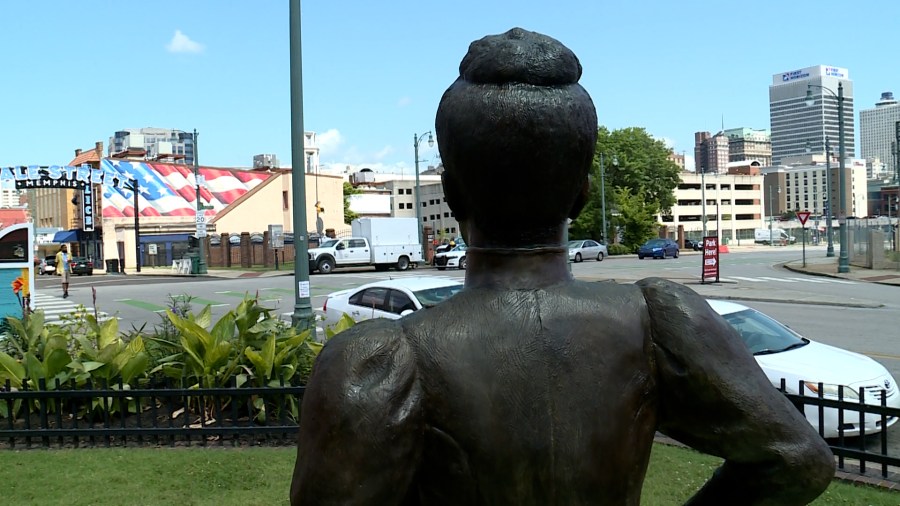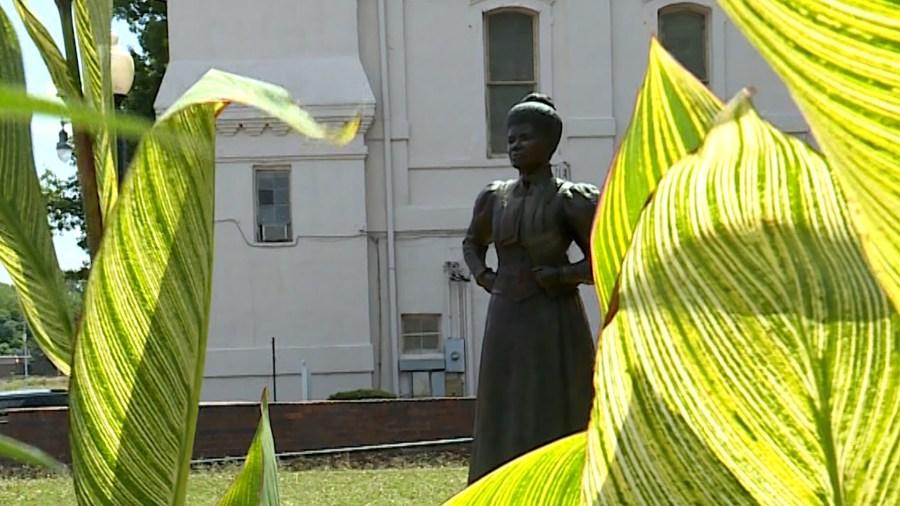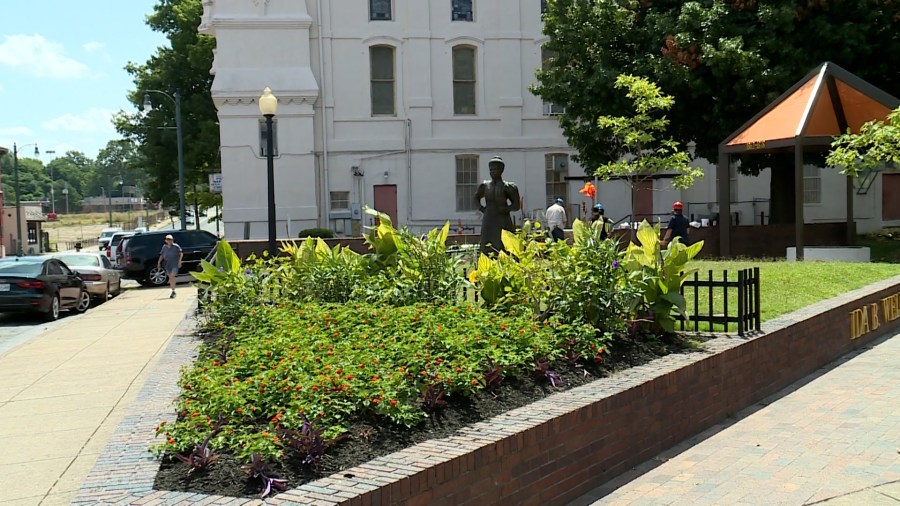MEMPHIS, Tenn. — After a week’s worth of events honoring civil rights activist and journalist Ida B. Wells, her statue was unveiled in downtown Memphis Friday morning.
Two of her descendants, Daniel Duster and Michelle Duster, led a parade from Beale Street and Main Street to Beale Street and Fourth Street to celebrate her legacy.
“This is an amazing day for our family to basically come back home to Memphis where my great grandmother got her start as a journalist and activist,” Michelle said.
The parade, held on what happens to be Wells’ birthday, marched to a new plaza named in her honor and to the unveiling ceremony of her life-sized statue on Beale Street.
Dr. LaSimba Gray is the chair of the Memphis Memorial Committee, the group dedicated to erecting the statue.
“We are happy and delighted to be here today to unveil this statue of Ida B. Wells, the first in the world of her, and we’re just elated by the crowd, the people who are here to support this unveiling ceremony,” Gray said.
It was a ceremony featuring several Memphis elected leaders and dignitaries.
“I’ve been a big fan of Ida B. Wells. To say that she is Maxine Smith, Lois Deberry, Minerva Johnican and Cornelia Crenshaw, Rosa Parks wrapped into one is an understatement,” said U.S. Rep. Steve Cohen. “She wouldn’t take no from anybody. She wouldn’t take being a second-class citizen.”
“I look at the unveiling today as an opportunity to not only honor her memory, but to reenergize ourselves to start to do the things that she did back in the day,” said Tennessee Rep. G.A. Hardaway.
The statue has been erected next to where Wells ran her newspaper inside First Baptist Beale Street Church.
“For a lady who has done so much for this country that hadn’t gotten notoriety, it’s about time and that’s why I’m here to celebrate this statue,” said Joe Harmon of Memphis.
Wells was born as a slave in Holly Springs, Mississippi. She lived and worked in Memphis, fighting against racism, segregation, and lynching, but she was forced to stay away after threats were made on her life and her office was destroyed.
Her family calls the celebration a homecoming.
“Unfortunately, because of what she did she wasn’t able to stay in Memphis,” Michelle said. “So for the last 130 we’ve been away from the city, but this like a homecoming for us.”
Wells died in 1931, but her family and others say her work and the statue will keep her legacy alive.
























